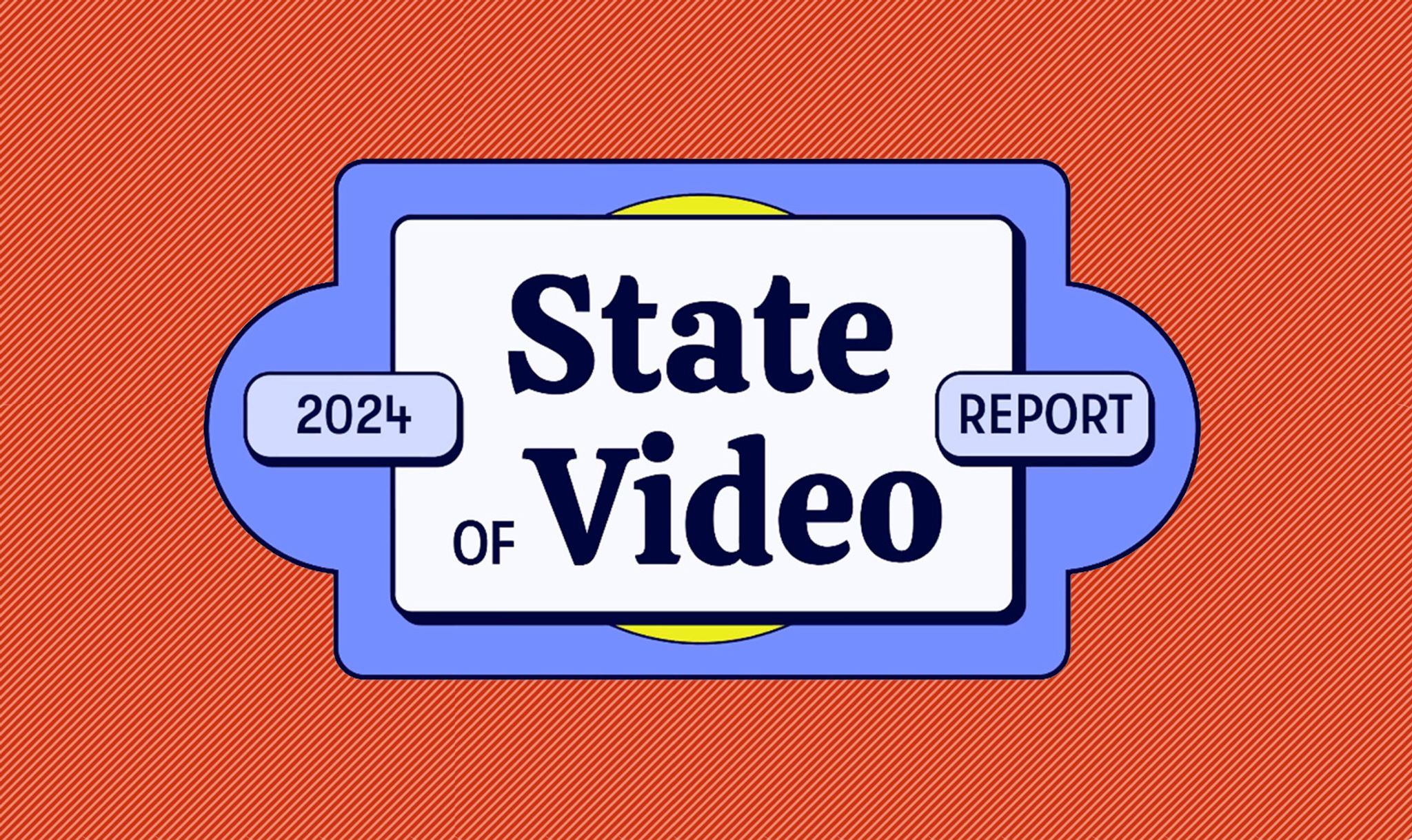Wistia Releases 2024 State of Video Report, Shows Surge in AI for Enhancing Video Accessibility

The video marketing platform's analysis of the market reveals that businesses are increasing their use of AI to make video content more inclusive, engaging, and far-reaching.
Digital accessibility continues to be an elusive problem. It really shouldn't be, but it is.
In the physical realm, governments around the globe have made solid gains in regulating environments and accommodating individuals with disabilities. Buildings have ramps, signs include Braille, and public transportation is equipped for all riders.
But digital experiences have struggled for a myriad of reasons, the least of which is a lack of similarly enforceable governance. While the W3C provides a strong measure of industry standardization via its WCAG guidelines, not everyone follows them. Sometimes, that results in contentious lawsuits like Robles v. Domino’s Pizza. In the end, the pie chain lost the battle, and the optics were even worse for its business.
In the U.S. public sector, there are more rigid compliance requirements like Section 508, where punitive damages have been awarded when cities or government agencies don't provide accessible experience. Unfortunately, that's just a portion of the entire addressable market, particularly when it comes to things like digital video.
Until recently, adding captions and transcripts to videos was labor-intensive and even cost-prohibitive. But the rise of artificial intelligence tools has changed the game – making it easier and, in many cases, a free part of many video platforms and experiences.
How has this impacted businesses? Wistia knows.
Today, the video marketing platform unveiled its “State of Video: Video Marketing Statistics for 2024” report, compiling real user data on the Wistia platform and feedback from an in-depth customer survey. Wistia analyzed over 90 million videos and over 100,000 businesses on their platform between January 1st and December 31st, 2023, to build the report.
While conducted annually, this year's analysis stands out as a bellwether for AI, revealing that the use of artificial intelligence to enhance video accessibility dramatically increased in 2023. The report also includes data that underscores the value of video for businesses, and that despite economic uncertainty over the past year, it remains a top priority in marketing strategies.
At the end of the day, accessibility is all about inclusion. It's necessary for users, but it's also good business for brands. Wista's report puts the numbers into sharp relief, showing the positive impact of AI to automate a critical task and deliver better experiences.
AI is making video more inclusive and far-reaching
With video usage and consumption growing, companies are focusing on increasing the accessibility of video content. AI has been a main driver in making videos more accessible with 59% more videos seeing a higher accessibility score in 2023 than in 2022.
In terms of factors that enhance video accessibility in 2023, video captions saw the most significant growth, with over 254% more businesses having closed captions on their videos than in 2022. In fact, more than half of companies using AI tools say they are most useful for auto-generating captions or transcripts.
The use of captions goes beyond increasing accessibility scores. According to TikTok, the presence of captions leads to a 95% jump in brand affinity, a 58% bump in recall, a 31% improvement in likability, and a 25% uplift in uniqueness, making video content more far-reaching and enhancing the overall audience experience.
“It’s clear brands are experimenting with AI in video creation and optimization,” said Chris Savage, CEO and co-founder of Wistia. “Given consumers in 2023 watched more videos than ever before, video inclusiveness has emerged as a top priority for brands. Unlocking the power of AI to create greater inclusivity in digital experiences stands at the forefront of the video production industry. We expect this to continue to evolve and shape how we create video content and how people engage with digital experiences.”
Users recognize the value of video despite roadblocks
According to the report, 80% of businesses said they want more video content, and 60% of businesses want to invest more money to make it. Despite economic uncertainty and limited resources throughout 2023, organizations still recognize the value of video, with only 4% reporting they’ll likely have fewer resources for video in 2024.
With nearly 100% of businesses saying that video is an important part of their marketing strategy, challenges still remain to create videos. The top are time and bandwidth, with 61% of businesses saying that’s their biggest hurdle, followed by 44% of companies saying team size, resources, and technical capability. Most video creators are using simple tools accessible to anyone with a laptop, with 57% of businesses using screen and webcam recorders.
Shorter videos aren’t necessarily more engaging
Though engagement tends to drop significantly when video length goes over five minutes, Wistia's data showed that the engagement rate for videos between one and five minutes is almost the same, no matter the length. This gives brands the freedom to experiment with longer videos.
Platforms like Facebook, Instagram, TikTok, and LinkedIn have expanded time limits for videos beyond two minutes, providing opportunities to create longer videos while keeping engagement rates high.
The Wistia report also revealed that consumers prefer instructional over promotional video content. Instructional content under five minutes had 2X the engagement of promotional content of the same length. According to TikTok, videos that show products in use see a +25% uplift in recall, +23% in ad likeability, +65% in brand affinity, and +18% in consideration.
Even as instructional videos get longer, they maintain a higher level of engagement on average. As brands consider types of video content to produce or strategies for engaging with influencers, explainer videos lead to higher engagement compared to promotional brand videos.
Want more stats?
Wistia goes deep with the details in this year's report. To peruse its statistics and get a better understanding of how accessibility fits into the picture, you can download the free report from the company's website.
Upcoming conferences

CMS Connect 24
August 6-7, 2024 – Montreal, Canada
We are delighted to present our first annual summer edition of our prestigious international conference dedicated to the global content management community. Join us this August in Montreal, Canada, for a vendor-neutral conference focused on CMS. Tired of impersonal and overwhelming gatherings? Picture this event as a unique blend of masterclasses, insightful talks, interactive discussions, impactful learning sessions, and authentic networking opportunities.

CMS Kickoff 25
January 14-15, 2025 – Tampa Bay Area, Florida
Join us next January in the Tampa Bay area of Florida for the third annual CMS Kickoff – the industry's premier global event. Similar to a traditional kickoff, we reflect on recent trends and share stories from the frontlines. Additionally, we will delve into the current happenings and shed light on the future. Prepare for an unparalleled in-person CMS conference experience that will equip you to move things forward. This is an exclusive event – space is limited, so secure your tickets today.
